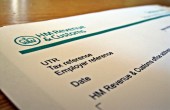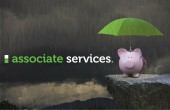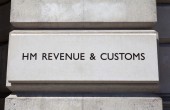Simple guide to Tax relief on Motor expenses and business mileage
Article Author: Kassim Harunani Posted on: June 03, 2015 (Full Author Bio in the box on the right side) 4567 views
4567 views

If you use a car both for business and privately, you can claim a proportion of the actual running costs e.g. fuel, oil, servicing, repairs, insurance, vehicle excise duty and MOT etc – usually in the ratio of your business mileage to your total mileage.
You must keep a log of business mileage as well as copies of all bills/receipts to calculate the appropriate deduction. The concept of business mileage is explored later on.
You can alternatively use a fixed rate per business mile to compute vehicle expenses instead of keeping detailed records of actual expenditure.
This method is intended to make things simpler for small businesses. It is available if the annual turnover of a business is less than the VAT registration threshold when they first use the vehicle (GBP 82,000 in 2015/16). The amounts to use are:
- Car or van 45 pence a mile for the first 10,000 miles and 25 pence a mile thereafter
- Motorcycle 24 pence a mile
- Cycle 20 pence a mile
Taxpayers can only use the mileage rate basis if they apply it consistently from year to year. They can only change to or from an ‘actual' basis when a vehicle is replaced. The mileage rate covers the costs of running and maintaining the vehicle, such as fuel, oil, servicing, repairs, insurance, vehicle excise duty and MOT. The rate also covers depreciation of the vehicle. So if a taxpayer uses the mileage rate basis then they cannot claim any additional amounts for these expenses.
Any deductible journeys must have been made wholly and exclusively for business purposes and a log of business mileage should be kept. Whatever your business and however you work out your motoring expenses, you must keep adequate records to back up your tax return. Please note that costs of motoring for mixed private and business purpose is non-allowable expenditure. An example would be the cost of travelling to town to bank the business takings and do your private shopping at the same time.
What constitutes business miles?
Where a taxpayer owns or rents separate business premises away from their residence then the general treatment is as follows: The cost of travel between the taxpayer's home and the work base is not allowable (this is ordinary commuting) The cost of travel between the work base and other places where work is carried out, is an allowable expense.
There are some types of business where the taxpayer has no separate business premises away from home. For example an insurance salesman who has no office away from his residence, but who visits clients.
Provided their base of operations is at their home, the costs of travelling between the residence and the sites at which they work may be allowed. This is because they travel from their home to a number of different locations for a purely temporary purpose at each such place – to complete a job of work. At the conclusion of which, they will attend at a different location.
In such cases, taxpayers would normally visit a large number of different premises to carry on business.
The position is rather different where a trader works at one or two different sites only during the year – for example a construction subcontractor working on the Olympic stadium. This is the normal pattern of his business, so the one or two sites will be the normal working place for the subcontractor. As such, the cost of travelling between the subcontractor's home and such business ‘bases’ should be disallowed because it is just ordinary commuting.
Where the subcontractor travels regularly at their own expense to a work base to receive instructions from a ‘principal’ and then is conveyed (at the principal’s expense) to another location/s, the subcontractor will have no allowable travel costs.
Latest Posts
-

Staying HMRC Compliant: VAT Returns Have Chan...
by Amanda Swales on January 29, 2020 Accounting & Tax -

Self Assessment Tax Return 101 - Filling In T...
by Amanda Swales on January 15, 2020 Accounting & Tax -

-



 How the 2015 Budget could affect you as an Independent Contractor
How the 2015 Budget could affect you as an Independent Contractor  5 benefits of contracting through an umbrella company
5 benefits of contracting through an umbrella company  Changes to the Flat Rate VAT Scheme are coming - are YOU ready?
Changes to the Flat Rate VAT Scheme are coming - are YOU ready?  Chancellor announced dividend tax hike from April 2016
Chancellor announced dividend tax hike from April 2016  Is contracting the key to a successful and family-friendly career
Is contracting the key to a successful and family-friendly career  Why Contractors should set up a home office
Why Contractors should set up a home office  How to avoid time between contracts
How to avoid time between contracts  The rise of the female contractor
The rise of the female contractor  Autumn Statement 2016 - How will the VAT Flat Rate Scheme Restriction Affect Contractors?
Autumn Statement 2016 - How will the VAT Flat Rate Scheme Restriction Affect Contractors?  MP David Morris calls for new IR35 legislation for Contractors
MP David Morris calls for new IR35 legislation for Contractors  Parents working full time file petition for free childcare
Parents working full time file petition for free childcare  Why Contractors Need To Understand IR35
Why Contractors Need To Understand IR35  Top 5 things a first-time Contractor should do when switching to Contracting
Top 5 things a first-time Contractor should do when switching to Contracting  How Important is IR35 and Tax Planning to Contractor Accountants
How Important is IR35 and Tax Planning to Contractor Accountants  How much salary should I pay myself as a Limited Company Contractor
How much salary should I pay myself as a Limited Company Contractor  What can Limited Company contractors expect from the Budget 2017?
What can Limited Company contractors expect from the Budget 2017?  UK plc confused about T&S regulations says FCSA research
UK plc confused about T&S regulations says FCSA research  Top 10 cash flow tips for IT Contractors
Top 10 cash flow tips for IT Contractors  The 10 commandments of contracting
The 10 commandments of contracting  Why Contractors in trust based schemes should think twice
Why Contractors in trust based schemes should think twice  RTI offers annual option for contractors
RTI offers annual option for contractors  Understanding tax basics - a guide for contractors
Understanding tax basics - a guide for contractors  Intermediaries' legislation - IR35: What is the likely impact of the new rules for contractors working in the public sector?
Intermediaries' legislation - IR35: What is the likely impact of the new rules for contractors working in the public sector?  What forms do I need to submit In my tax return?
What forms do I need to submit In my tax return?  FCSA urges Osborne to get his facts right before tarnishing all contractors
FCSA urges Osborne to get his facts right before tarnishing all contractors  Simple guide to Tax relief on Motor expenses and business mileage
Simple guide to Tax relief on Motor expenses and business mileage  Professional Indemnity Insurance Explained
Professional Indemnity Insurance Explained  Great Chance to Win a Trip to Monaco for IT Contractors
Great Chance to Win a Trip to Monaco for IT Contractors  First Time Buyers get cashback on Contractor Mortgages
First Time Buyers get cashback on Contractor Mortgages  First Time Buyers take advantage of the new Help to Buy ISA
First Time Buyers take advantage of the new Help to Buy ISA  Is Umbrella Company the best solution for first-time Contractors?
Is Umbrella Company the best solution for first-time Contractors?  6 free tools all contractors should use
6 free tools all contractors should use  What all recruiters need to know
What all recruiters need to know  Festive Gift Ideas for Limited Company Directors
Festive Gift Ideas for Limited Company Directors  Sole Enterprise with Protected Assets or Limited Company - Which is better for Contractors?
Sole Enterprise with Protected Assets or Limited Company - Which is better for Contractors?  5 Trusted Contractor Services Providers in the UK
5 Trusted Contractor Services Providers in the UK  Why it is important for Contractors to network effectively
Why it is important for Contractors to network effectively  How IR35 reforms in the private sector going to affect the self-employed?
How IR35 reforms in the private sector going to affect the self-employed?  5 New Contractor Mortgages Friendly Lenders Enter The Market
5 New Contractor Mortgages Friendly Lenders Enter The Market  The top 3 common mistakes Contractors make
The top 3 common mistakes Contractors make  How will the new tax year affect IT Contractors and Umbrella Companies
How will the new tax year affect IT Contractors and Umbrella Companies  Why compliance has lost its meaning for contractors
Why compliance has lost its meaning for contractors  Benefits for Freelance Contractor Mortgages Insurance
Benefits for Freelance Contractor Mortgages Insurance  What is Contractor Mortgages and how to secure the best mortgage deal?
What is Contractor Mortgages and how to secure the best mortgage deal?  Election 2015 - what is in it for contractors and freelancers
Election 2015 - what is in it for contractors and freelancers  What is the 24 month rule and how does it apply to Contractors
What is the 24 month rule and how does it apply to Contractors  FCSA submits its official response to the HMRC consultation
FCSA submits its official response to the HMRC consultation  Contractor paid 2500 GBP to HMRC for tax return mess up
Contractor paid 2500 GBP to HMRC for tax return mess up  What a Directors loan means and who can take one
What a Directors loan means and who can take one  FCSA calls for HMRC to abandon its consultation on public sector use of off payroll staff
FCSA calls for HMRC to abandon its consultation on public sector use of off payroll staff  Contractors feel puzzled of the UK job market
Contractors feel puzzled of the UK job market  IR35 IT Contractors And Office Holders
IR35 IT Contractors And Office Holders  The future of IR35 in the public and private sectors
The future of IR35 in the public and private sectors  HMRC admits contractor tax change legislation needs a rewrite
HMRC admits contractor tax change legislation needs a rewrite  How can a contractor be a winner in the tax race
How can a contractor be a winner in the tax race  The golden rule of Contracting
The golden rule of Contracting  Fun ways to save money for the adventurous contractor
Fun ways to save money for the adventurous contractor  Is it time to break up with your Accountant
Is it time to break up with your Accountant  How HMRC continue to confuse matters for Contractors and Agencies
How HMRC continue to confuse matters for Contractors and Agencies  A checklist and timeline for new Contractors
A checklist and timeline for new Contractors  General Elections from the Tax perspective for UK Contractors
General Elections from the Tax perspective for UK Contractors  APSCo backs call for strategic review which could end raw deal for contractors
APSCo backs call for strategic review which could end raw deal for contractors  How important is it to protect your income as a contractor
How important is it to protect your income as a contractor  Registrar of Companies Scam Letter sent to Businesses
Registrar of Companies Scam Letter sent to Businesses  Why Contractors should never stop learning
Why Contractors should never stop learning  Is there light at the end of the tunnel for UK Contractors
Is there light at the end of the tunnel for UK Contractors  Why Brexit will not be an easy exit
Why Brexit will not be an easy exit  Why Contractors should save for a rainy day
Why Contractors should save for a rainy day  What is Required For Your First Digital VAT Return: Making Tax Digital
What is Required For Your First Digital VAT Return: Making Tax Digital  Budget is good for small business but still hurts contractors
Budget is good for small business but still hurts contractors  Will the low rates mortgage price war benefit UK Contractors?
Will the low rates mortgage price war benefit UK Contractors?  Insulting to Contractors
Insulting to Contractors  The Taxman is going to war on UK Contractors
The Taxman is going to war on UK Contractors  HMRC Employment Status Service tool - How accurate is it in determining the IR35 risk for contractors?
HMRC Employment Status Service tool - How accurate is it in determining the IR35 risk for contractors?  How will Supervision Direction or Control rules affect Contractors
How will Supervision Direction or Control rules affect Contractors  Why Contractors MUST Download TeraCopy Freeware
Why Contractors MUST Download TeraCopy Freeware  How does the recent IR35 changes in the public sector affect UK contractors?
How does the recent IR35 changes in the public sector affect UK contractors?  How will Autumn statement affect Contractors?
How will Autumn statement affect Contractors?  What does change in dividends mean to UK Contractors
What does change in dividends mean to UK Contractors  Do I Need To Complete The Self Assessment? How To Know If You Have A Tax Return Due
Do I Need To Complete The Self Assessment? How To Know If You Have A Tax Return Due  How IT Contractors can become an expenses wizard
How IT Contractors can become an expenses wizard  How to deal with unplanned time off for UK Contractors
How to deal with unplanned time off for UK Contractors  Barclays and Citigroup are the latest to cut IT Contractor pay
Barclays and Citigroup are the latest to cut IT Contractor pay  10 Must Have iOS Apps for UK Contractors
10 Must Have iOS Apps for UK Contractors  Beginners Guide to IT Contracting
Beginners Guide to IT Contracting  Personal Service Company Guide for UK Contractors
Personal Service Company Guide for UK Contractors  Where is your IT contracting career going
Where is your IT contracting career going  Umbrella Company and IR35
Umbrella Company and IR35  Relieve the stresses of Limited Company contracting with 4 simple solutions
Relieve the stresses of Limited Company contracting with 4 simple solutions  The true value of umbrella companies for UK contractors
The true value of umbrella companies for UK contractors  Amendments in Finance Bill to prevent misuse of Personal Service Companies
Amendments in Finance Bill to prevent misuse of Personal Service Companies  RIP Business Entity Tests
RIP Business Entity Tests  Doubt is cast on HMRC new IR35 proposals for contractors
Doubt is cast on HMRC new IR35 proposals for contractors 

